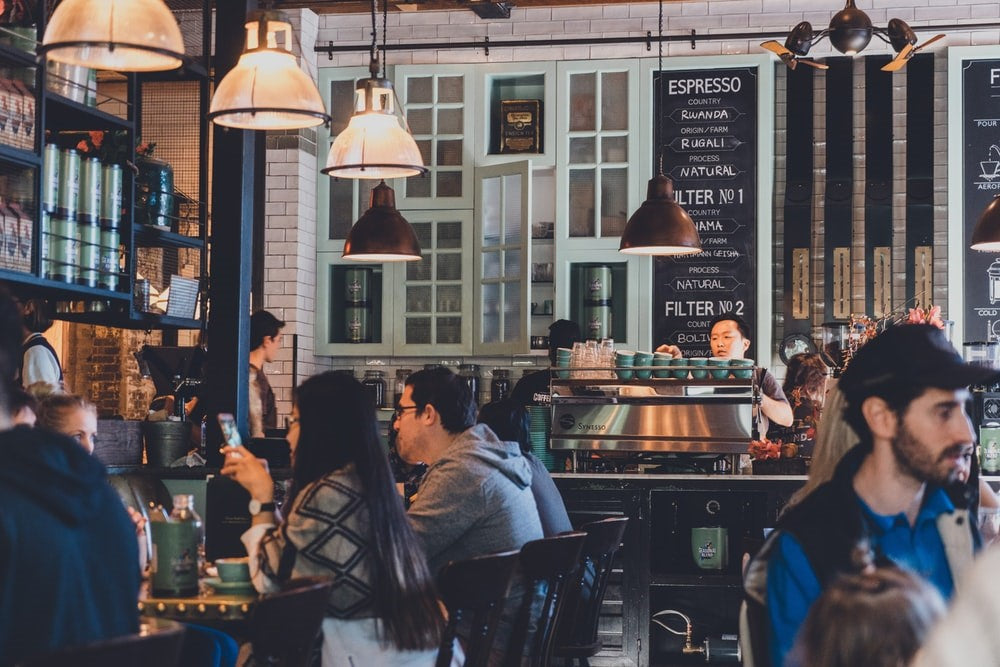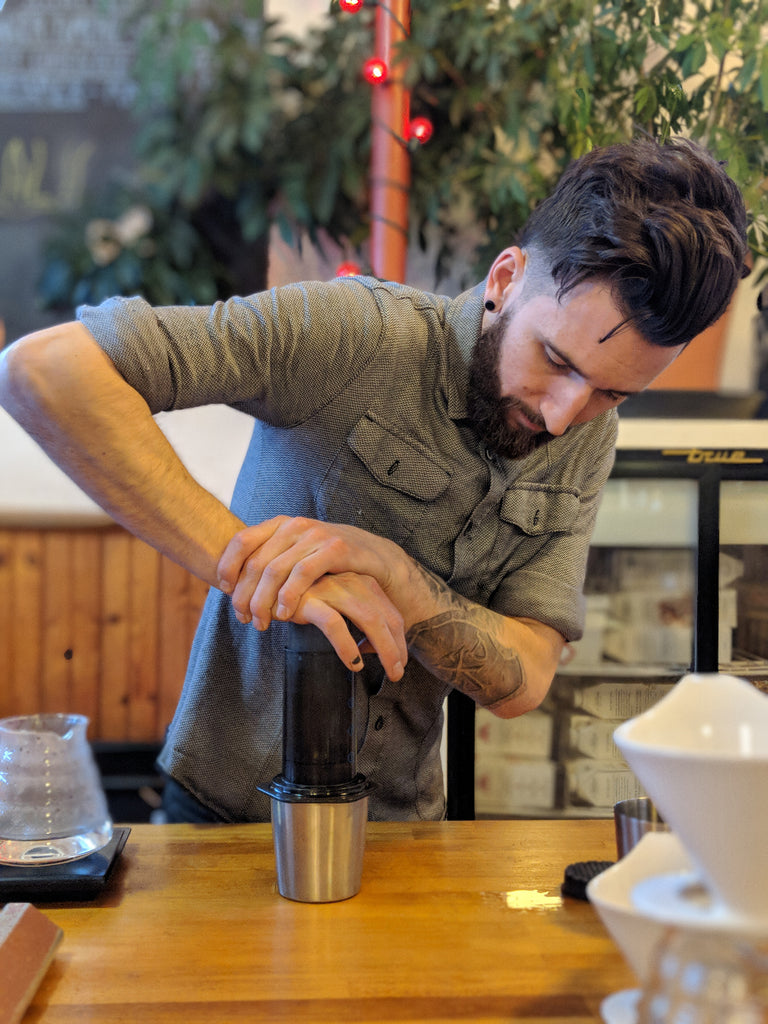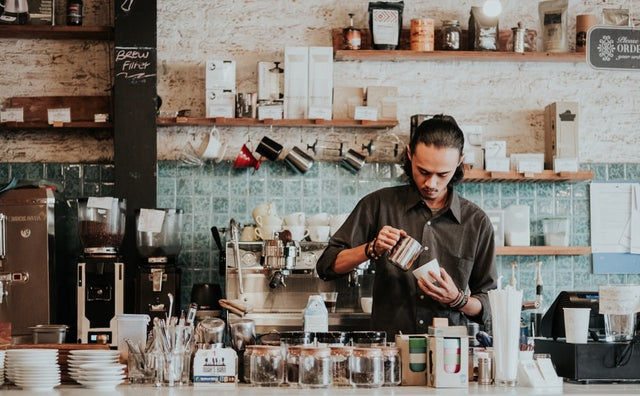History of Coffee Culture and Coffee Shops
Over the years, the coffee shop has become so much more than a place to find a delicious brew. Coffee has proved a source of inspiration for many, (possibly due to the energy these beans can provide!) and since the first coffee shops were established, they have been used as hang out spots and meeting points for artists, writers, musicians and more.
Coffee Culture
Along with the development of coffee shops comes ‘coffee culture’, a set of traditions and rules around the way cafes are used, and the way coffee is enjoyed there – some are universal, whereas others are unique to a specific location.
Today, we associate the coffee shop with things other than just drinking coffee. It’s an office space, a place to chat, somewhere to find a tasty bite to eat, or even meet someone special. Coffee culture goes beyond a simple coffee stop.

Why Do We Love Coffee Shops?
Coffee shops are everywhere, not just on our high streets, but globally beloved. They are a home away from home, offering a cosy, bubbly environment, which can offer a sense of comfort, even when we visit alone.
Coffee shops and cafes also offer the ideal meeting ground for many. It’s hard to go wrong with a café – there’s usually a drink to suit everyone’s taste, and it’s always socially acceptable to visit, unlike a pub – which you probably wouldn’t visit for a 10am meeting!
Cafes and coffee houses also, typically, offer a more affordable place to spend time, in comparison to the likes of restaurants.
Coffee shops have placed just as much a focus on the ambience and aesthetic as they have on the coffee they create, making the whole experience as enjoyable as possible.

History of Coffee Shops
Coffee has long been enjoyed around the world. To celebrate the enjoyment of coffee together, and to make the beverage accessible to more people, coffee shops were established.
There is evidence of coffee houses in Mecca dating back to the 12th century, but the first recorded coffee house was Kiva Han, which opened in 1475 in Constantinople (Istanbul).
The first coffee house in Europe was opened in Venice in 1645, with England gaining its first coffee shop in 1652.

Viennese Coffee Culture
Vienna has often been considered a world leader for coffee house culture. In fact, “Viennese Coffee House Culture” is even recognised as ‘Intangible Cultural Heritage’ as part of UNESCO.
Coffee was said to be introduced to the city after coffee beans were left behind by Turkish officers following the Battle of Vienna.
Their first coffee house was established by a Polish officer named Jerzy Franciszek Kulczycki, who made use of the abandoned beans. It was here that the tradition of adding milk and sugar to coffee was established.
By the early-1900s, Viennese coffee shops were extremely popular, particularly with artists and writers.
Australian Coffee Culture
In more recent years, Australia’s coffee culture has become world-renowned, with many innovative and interesting drinks being born of this area. The likes of the blue latte originated in Melbourne, and many other insta-worthy beverages have been created there.

American Coffee Culture
Americans are renowned for loving their coffee. While it hasn’t always been their drink of choice (they actually used to prefer tea), following the events of the Boston Tea Party in 1773, coffee has been a firm favourite in the States.
In America, coffeehouses were initially established as places for businessmen to meet. For example, the Tontite Coffee House was established in 1793 in New York, and essentially became the first version of the New York Stock Exchange, as it was one of the busiest places in New York to buy and sell stocks and shares!
Another notable aspect of American coffee culture is Starbucks, which opened its first coffee shop in Seattle in 1971. With a focus on convenience and the ability to customise your drink how you want, Starbucks is now a giant in the coffee industry, with over 30,000 stores worldwide.

Internet Cafes
Another form of coffee culture, and an important inclusion in the history of coffee houses, is the internet café. The first online café was established in South Korea in 1988, although they didn’t become globally popular until around 1994.
Internet cafes provide full internet access for visitors, as well as computers available for customer use. Of course, nowadays, many people have devices at home, which has rendered the internet café slightly obsolete.
However, in the 1990s and 2000s, internet cafes were bustling with people looking to get online, and this has worked to establish coffee shops as a place to go to do work – although now it is more common to bring your own laptop!
Office Coffee Breaks
Another significant aspect of coffee culture is the coffee break. Coffee culture is strong in offices, with many workplaces having a communal coffee pot or with colleagues doing rounds of brews.
Coffee culture in the workplace is said to not only boost productivity, but also increase social interactions and make staff happier. A coffee break allows employees to interact on a personal level, while also boosting their performance once they get back to work!

New Coffee Brewing Methods
In recent years, new coffee brewing methods have opened up a whole world of possibilities for coffee lovers. New innovations in coffee brewing have allowed for people to make delicious coffee at home, rather than having to depend on a coffee shop for a premium sip.
Many coffeehouses have also upped their game in recent times, introducing alternative brewing styles into their cafes, such as the AeroPress UK, to provide customers with the highest-quality coffee.
Speciality coffee shops often lead the way when it comes to innovative brewing methods and recipes, with cafes constantly finding new ways to impress customers.
We are excited to see what the future of coffee culture and coffee houses holds. What would you love to see in coffee shops?

0 Comments
There are no comments for this article. Be the first one to leave a message!